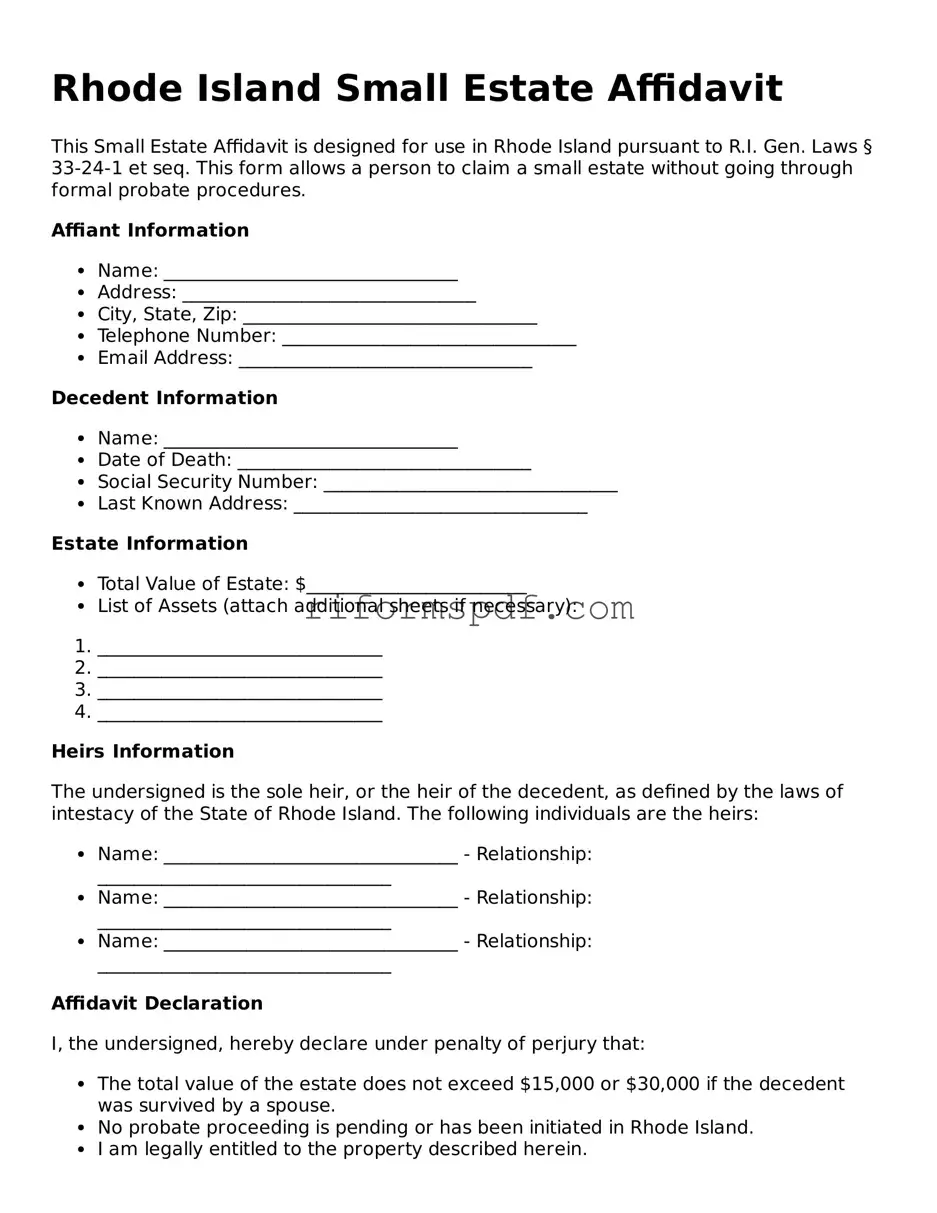Printable Small Estate Affidavit Form for Rhode Island
The Rhode Island Small Estate Affidavit form is a legal document that allows individuals to settle the estate of a deceased person without going through the lengthy probate process. This form simplifies the transfer of assets for estates valued under a certain threshold, making it easier for heirs to claim what they are entitled to. Understanding how to properly use this affidavit can save time and reduce stress during an already challenging period.
Launch Editor

Printable Small Estate Affidavit Form for Rhode Island
Launch Editor
Finish the form now and be done
Edit Small Estate Affidavit online and skip the paperwork.
Launch Editor
or
⇓ PDF Form
